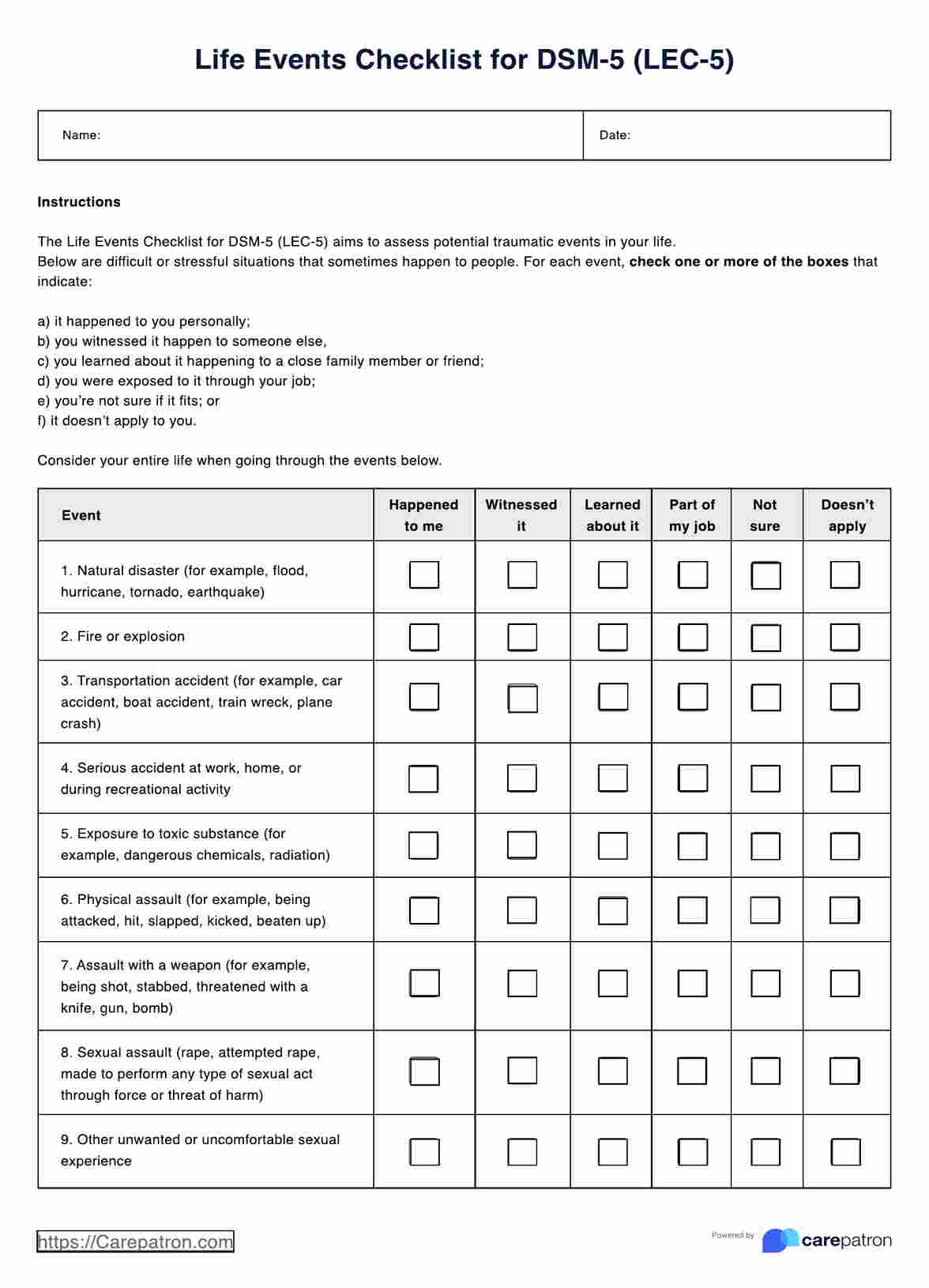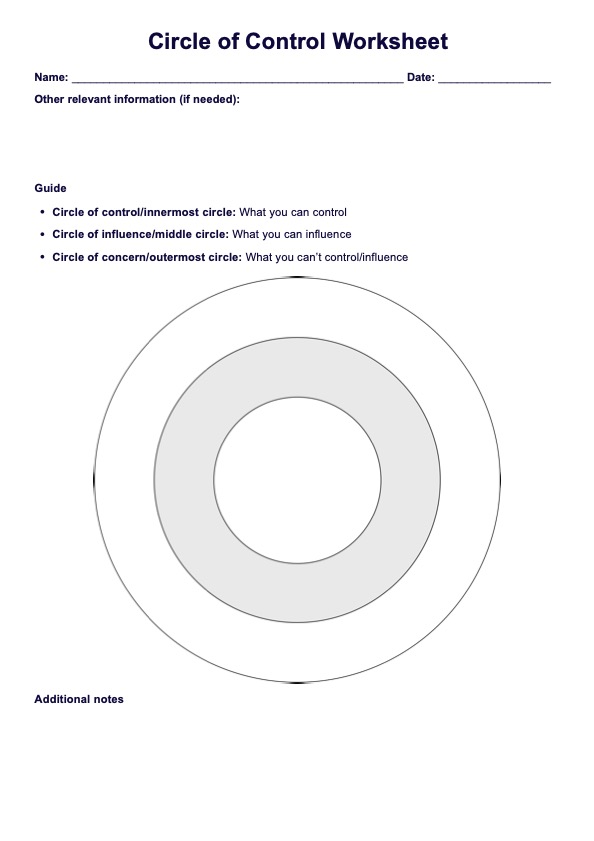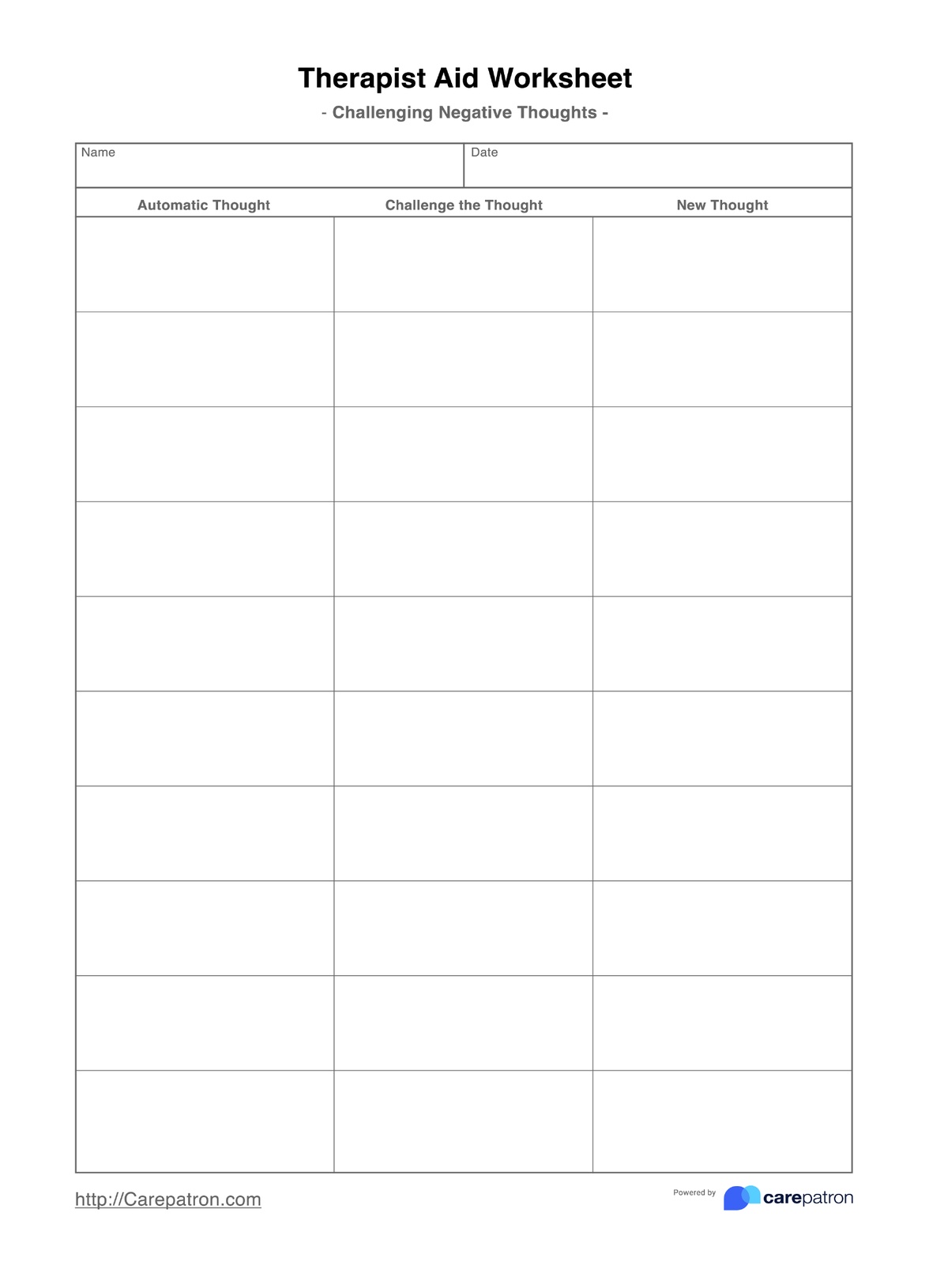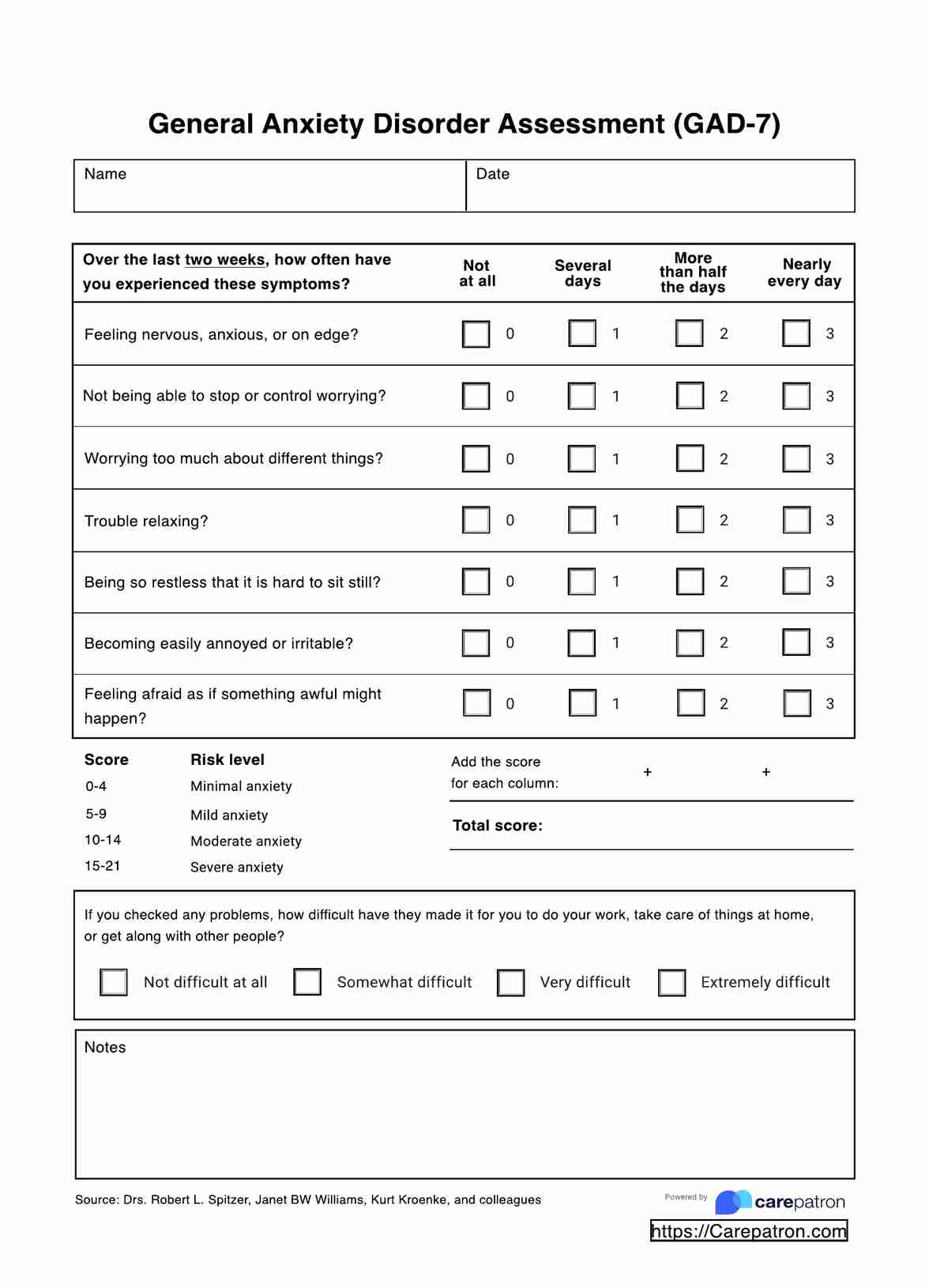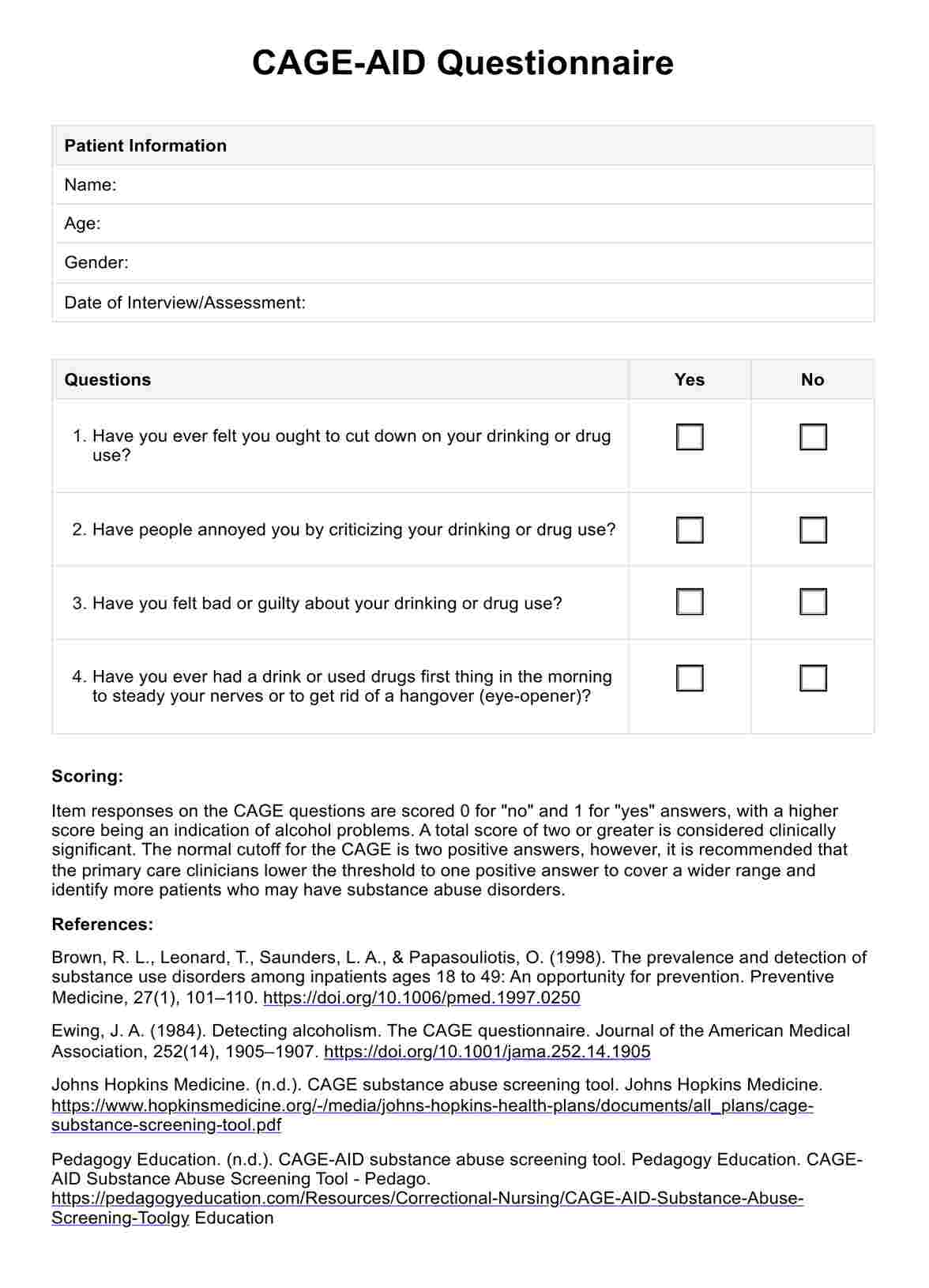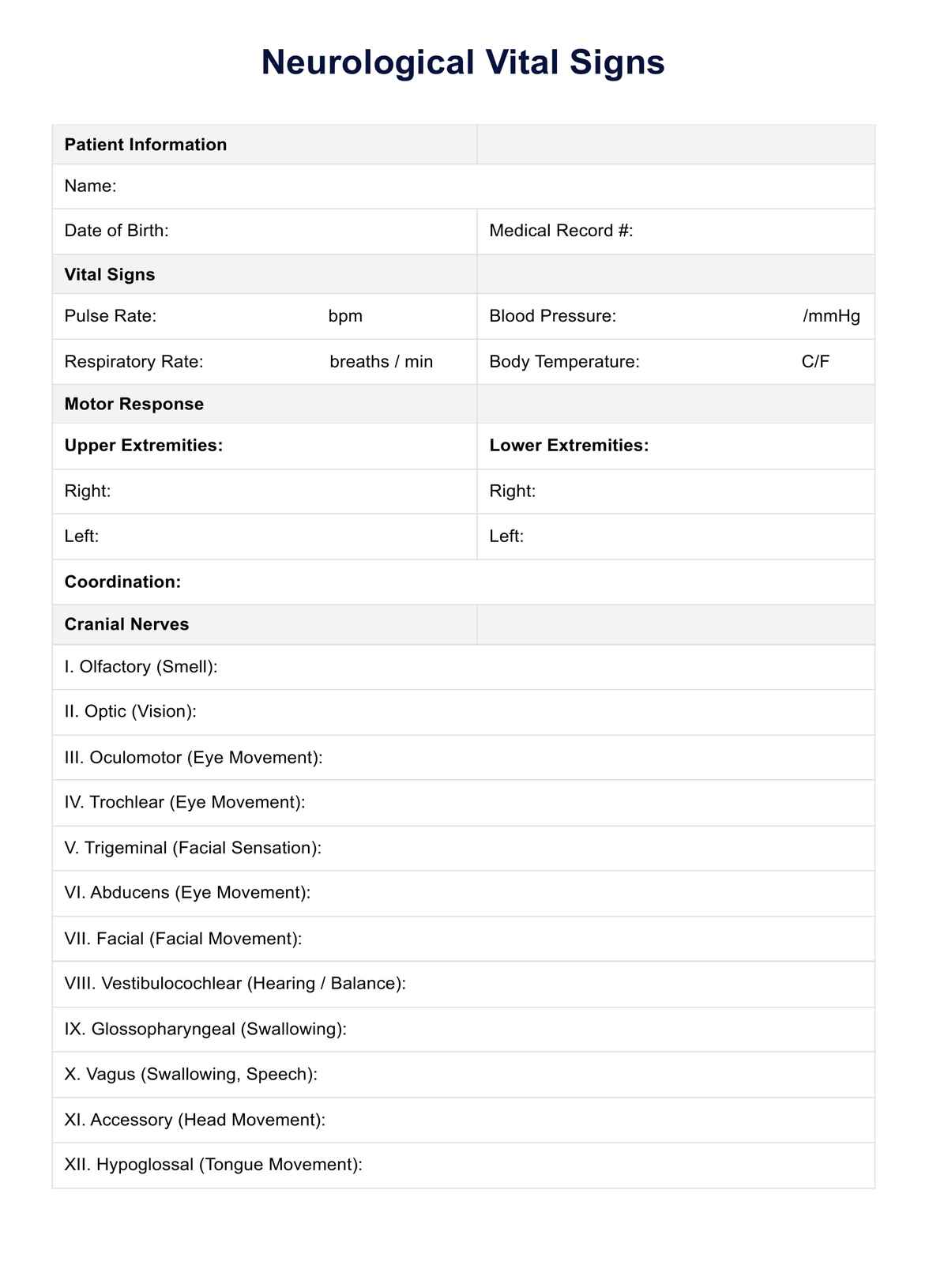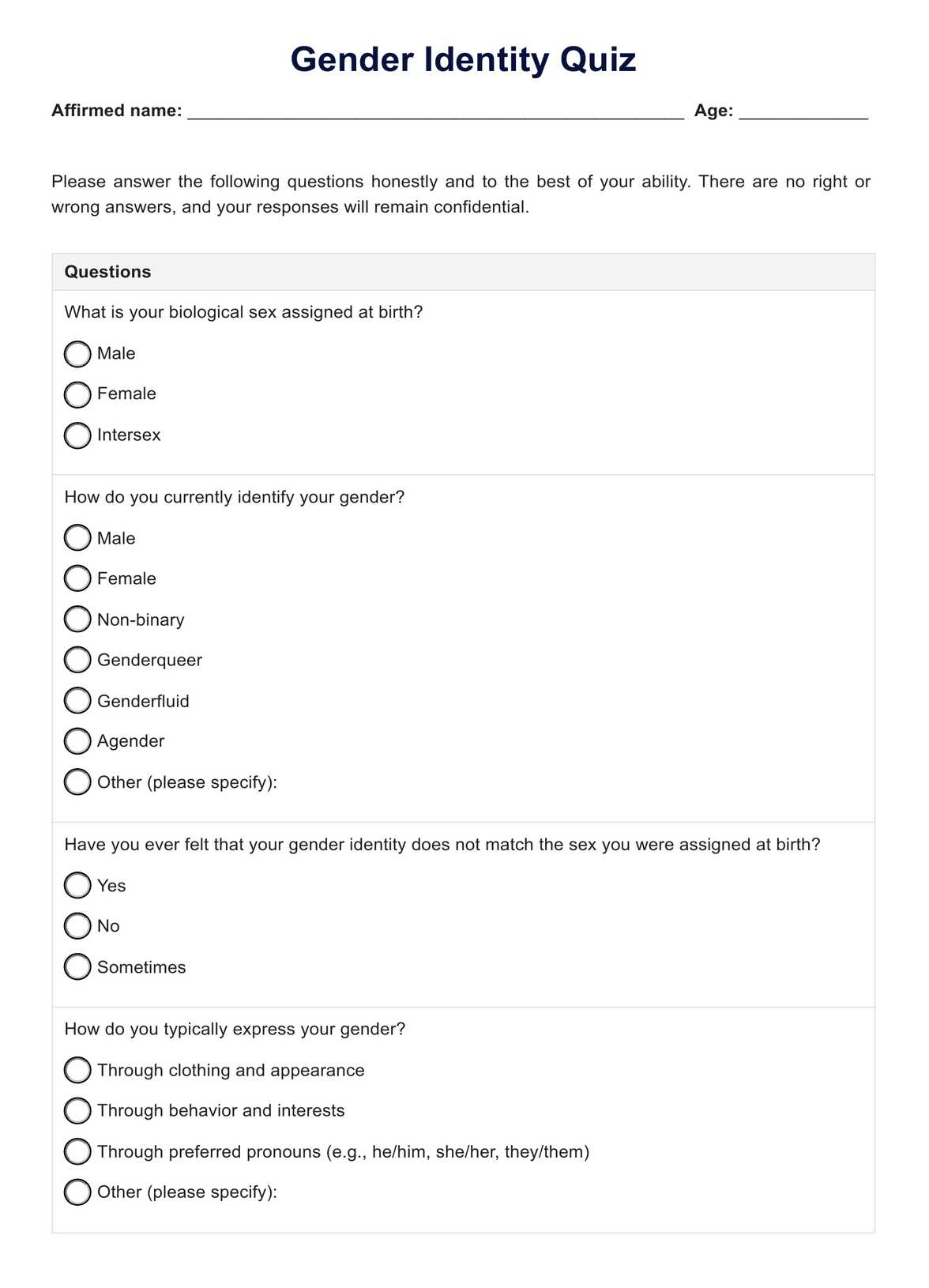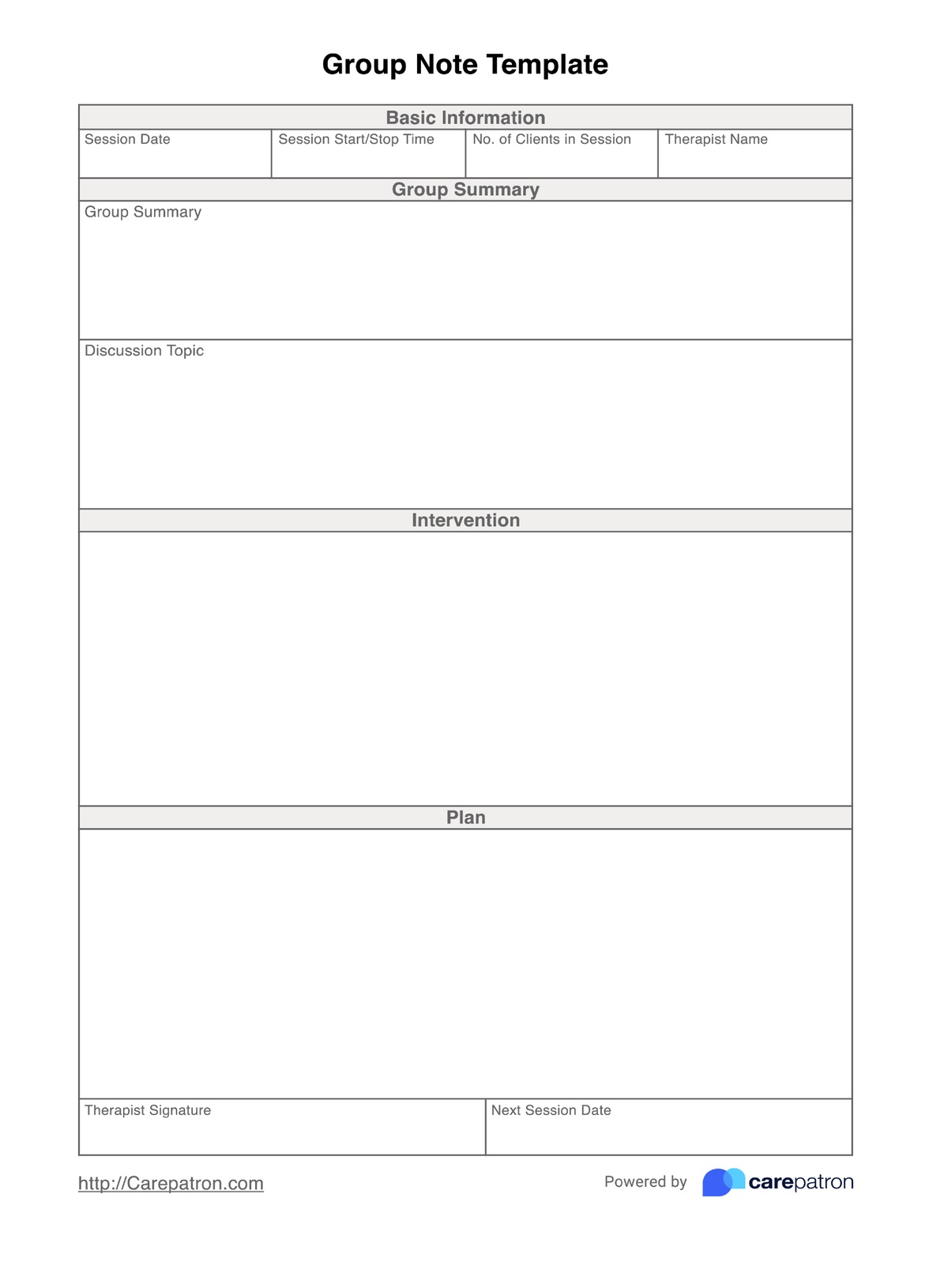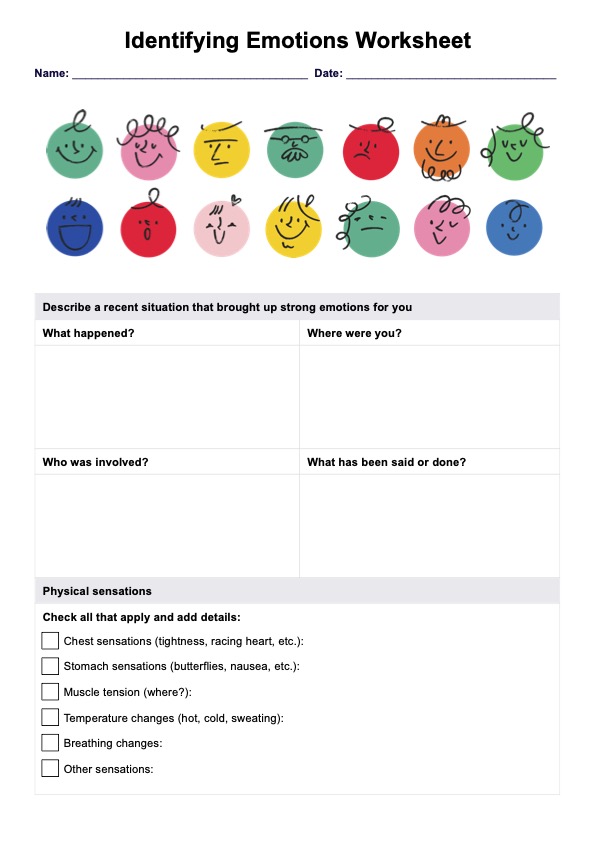Unpacking Your Gratitude PTSD Worksheet
Unpacking Your Gratitude PTSD Worksheet—a tool to address trauma and improve well-being. Download the free PDF guide for practical use.


What is Trauma and PTSD?
Trauma is an intensely distressing or disturbing event that overwhelms an individual's capacity to cope effectively, resulting in lasting emotional and psychological wounds. These traumatic incidents can encompass a broad spectrum, including natural disasters, accidents, combat experiences, physical or sexual assault, and other life-threatening situations. Trauma leaves profound marks on a person's mental and emotional well-being, often leading to enduring adverse effects that persist long after the traumatic occurrence.
Gratitude, although not a direct treatment for , plays a crucial role in the healing process. It is a potent psychological tool that assists individuals in reframing their perspective and discovering moments of positivity amid the darkness of trauma. By centering on gratitude, individuals can gradually reconstruct their emotional equilibrium and resilience, mitigating some of the distressing effects of trauma.
Integrating gratitude into the recovery process can complement evidence-based therapies like Cognitive Behavioral Therapy (CBT), widely acknowledged for its effectiveness in treating PTSD. Combining CBT with gratitude practices can aid individuals in cultivating healthier thought patterns, managing symptoms more effectively, and fostering resilience on their healing journey.
Unpacking Your Gratitude PTSD Worksheet Template
Unpacking Your Gratitude PTSD Worksheet Example
How to use the Unpacking Your Gratitude PTSD Worksheet:
The Unpacking Your Gratitude PTSD Worksheet can facilitate the healing journey of individuals grappling with trauma and Post-Traumatic Stress Disorder (PTSD). Guide your clients through the utilization of this worksheet:
Step 1: Introduce the Worksheet
Begin by introducing the Unpacking Your Gratitude PTSD Worksheet to your client. Emphasize its purpose as a tool to aid healing and recovery. Explain how gratitude practices can complement therapeutic interventions like Cognitive Behavioral Therapy (CBT) in managing PTSD symptoms.
Step 2: Establish a Suitable Environment
Recommend that your client select a quiet, comfortable space to complete the worksheet. Emphasize the importance of minimizing external distractions to facilitate focused introspection. Encourage them to create a serene atmosphere with appropriate lighting and ambiance.
Step 3: Allocate Dedicated Time
Stress the significance of allocating dedicated time for this exercise. Help your client understand that this is an investment in their well-being and should not be rushed. Ensure they have a block of time available to engage thoughtfully with the worksheet.
Step 4: Facilitate Trauma Reflection
Guide your client in initiating their exploration by reflecting on the traumatic experience that has significantly impacted their life. Encourage them to confront their emotions, thoughts, and daily challenges stemming from the trauma. Ensure that you provide a supportive and empathetic environment for this step.
Step 5: Support Gratitude Practice
Assist your client in navigating the worksheet's prompts to identify and acknowledge moments of gratitude in their life. Encourage them to focus on even the smallest, everyday blessings. Facilitate discussions around their feelings and emotions as they progress through these prompts. Reinforce the therapeutic benefits of gratitude.
When Would You Use the Unpacking Your Gratitude PTSD Worksheet?
The Unpacking Your Gratitude PTSD Worksheet can be applied in various situations to support individuals on their healing journey. Here are the critical scenarios in which this worksheet proves to be most beneficial:
Use During Trauma Recovery Journey
Individuals who have experienced trauma can employ this worksheet as part of their recovery process. It is a constructive tool to promote healing by encouraging a positive mindset and emotional resilience.
Coping with Anxiety and Flashbacks
Those grappling with Post-Traumatic Stress Disorder (PTSD) symptoms, such as anxiety and flashbacks, can integrate this worksheet into their self-care routine. It offers a structured approach to managing distressing emotions and thoughts.
Integration into Therapy Sessions
Healthcare professionals, therapists, and counselors can incorporate the Unpacking Your Gratitude PTSD Worksheet into their therapy sessions. It is a complementary resource to support their client's healing process and encourages open discussions about gratitude and emotional well-being.
With this worksheet, you can guide your clients toward positive change, helping individuals build resilience and navigate the challenges associated with trauma and PTSD.
What Are the Benefits of Using This Unpacking Your Gratitude PTSD Worksheet?
Using our Free Unpacking Your Gratitude PTSD Worksheet offers a range of notable benefits that can significantly impact an individual's emotional well-being and healing process.
Enhanced Emotional Resilience
As facilitated by this worksheet, gratitude practices have the power to enhance emotional resilience. By regularly acknowledging moments of gratitude, individuals can develop a more robust capacity to cope with traumatic experiences. This heightened resilience can help them navigate the emotional challenges often accompanying trauma and PTSD.
Improved Mental Well-being
The consistent use of the Unpacking Your Gratitude PTSD Worksheet can improve mental well-being. Gratitude exercises have been associated with reduced stress and anxiety levels, contributing to a more positive mental state. Individuals may experience a sense of calm and emotional balance as they engage with this resource.
Enhanced Therapeutic Progress
For healthcare professionals, integrating the Unpacking Your Gratitude PTSD Worksheet into therapy sessions can significantly enhance therapeutic progress. It is a valuable adjunct to evidence-based treatments like Cognitive Behavioral Therapy (CBT). By incorporating gratitude practices, therapists can encourage clients to cultivate a positive mindset, manage symptoms more effectively, and foster resilience.
Employing this PTSD worksheet template will enhance your practice and client outcomes. It promotes effective management of PTSD symptoms and treatment.
Commonly asked questions
It can vary from person to person, but dedicating 20-30 minutes per session is a good starting point.
The worksheet can help promote gratitude, self-reflection, and emotional healing, aiding recovery from trauma and managing PTSD symptoms.
Anyone who has experienced trauma, healthcare professionals, and therapists can use this worksheet to support their healing journey or therapy sessions.


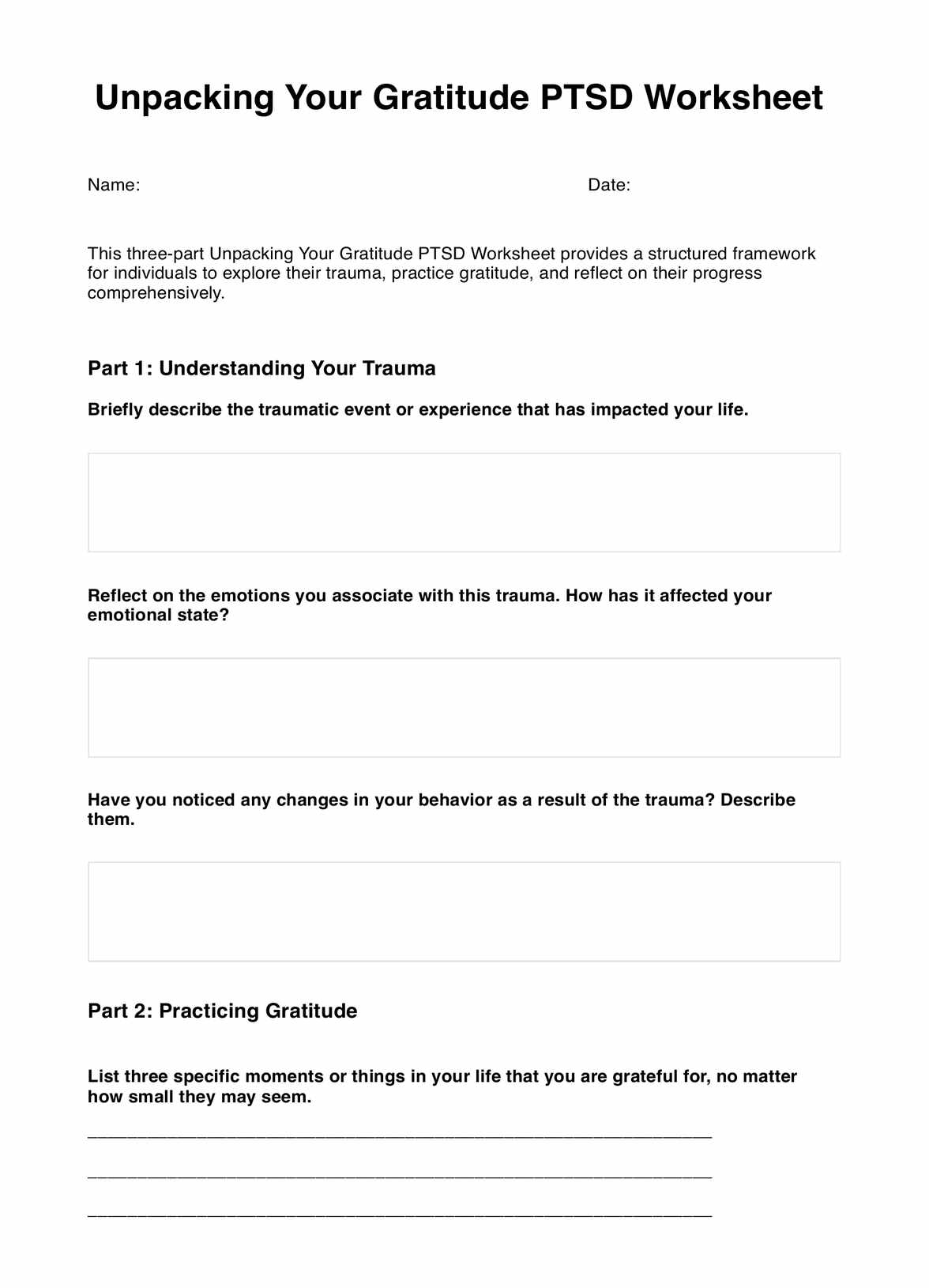
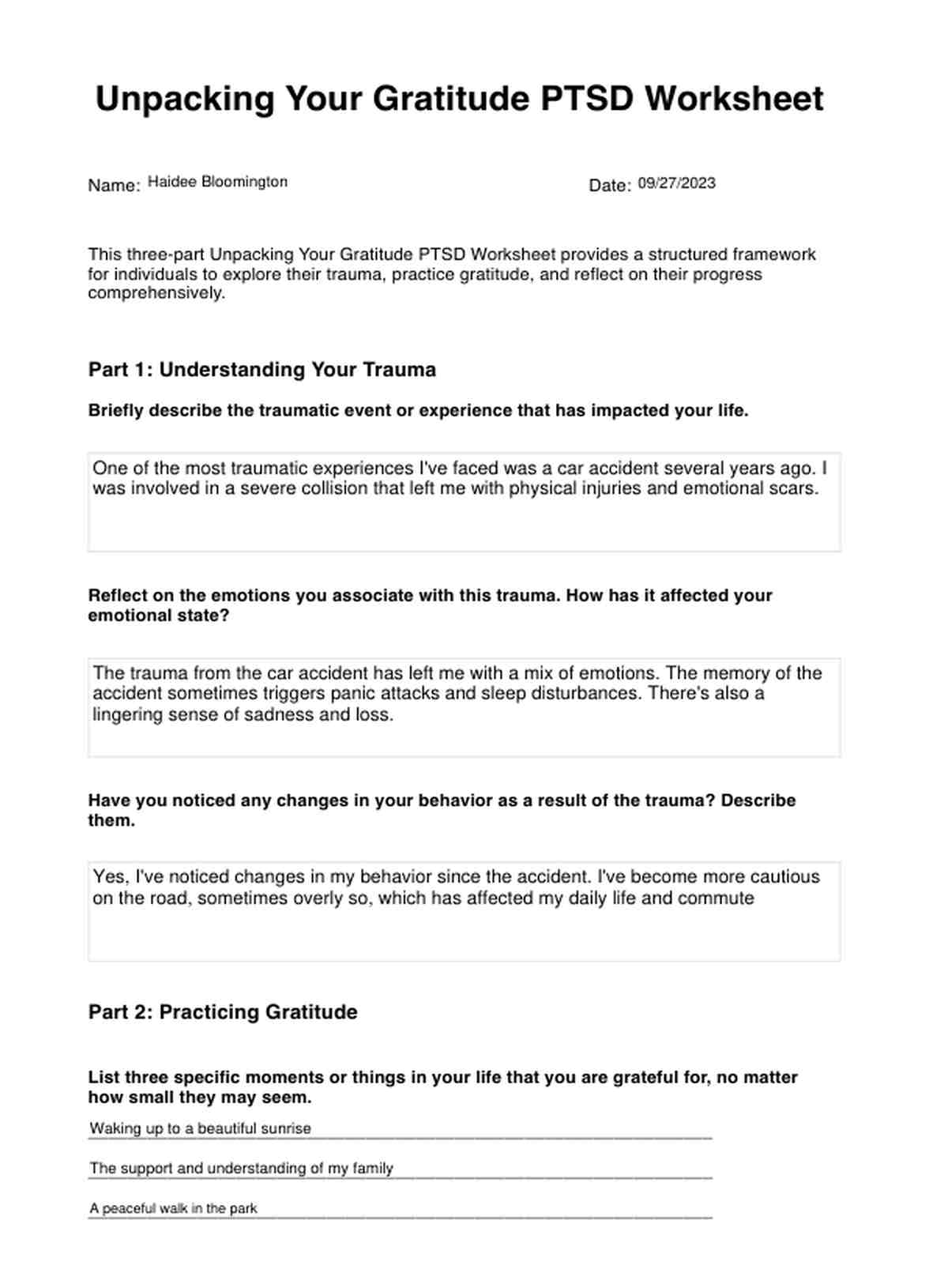

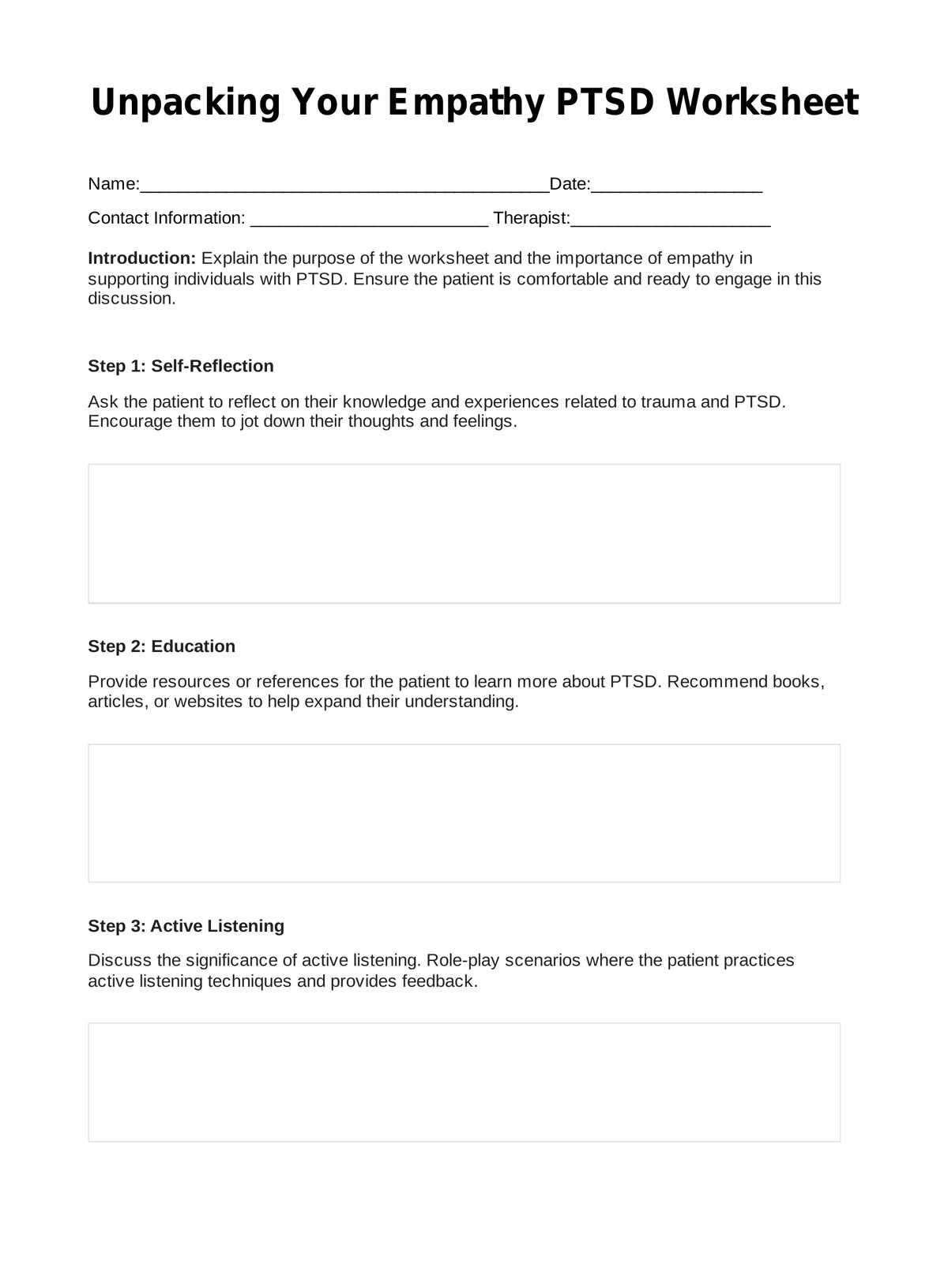
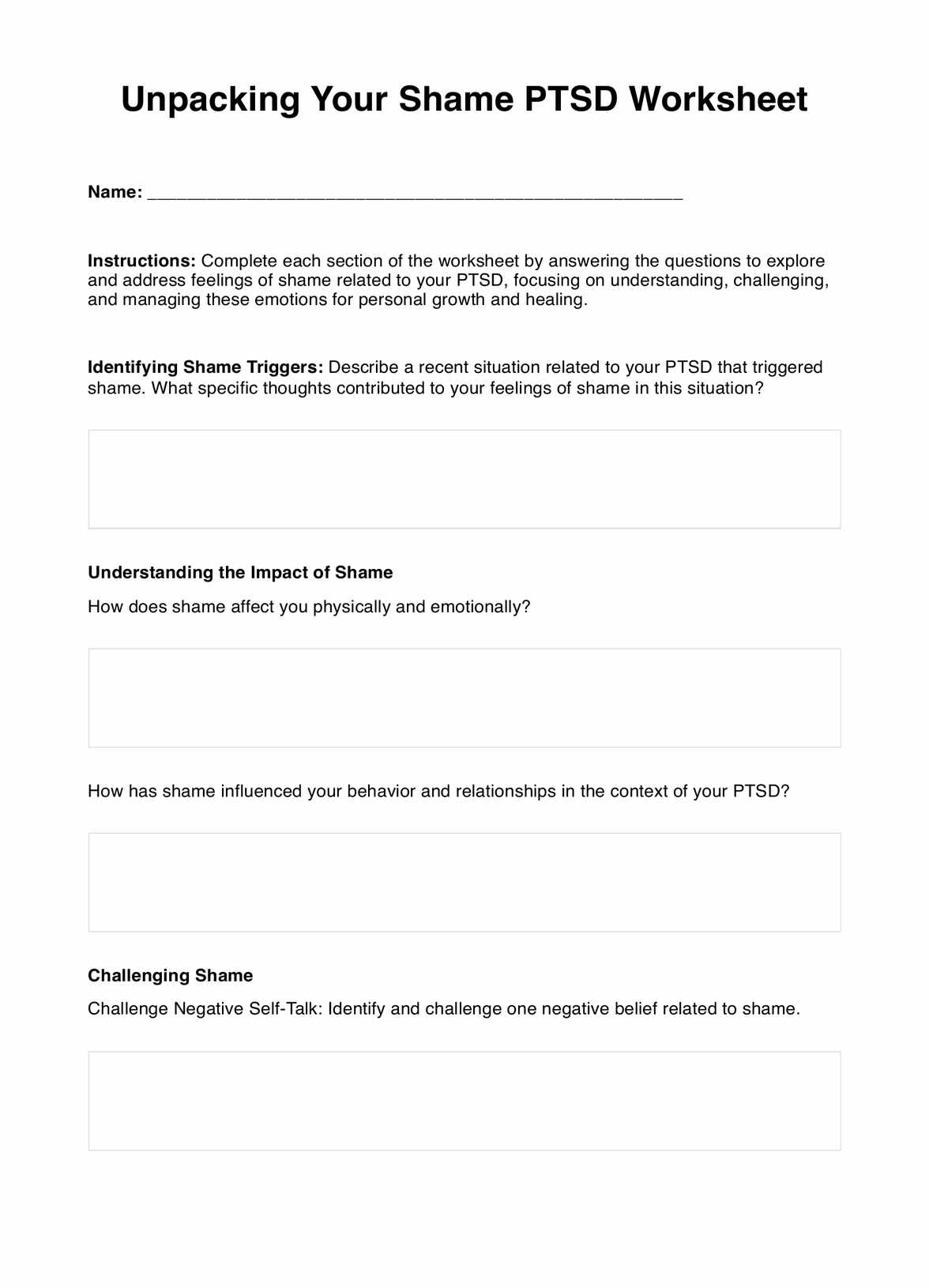
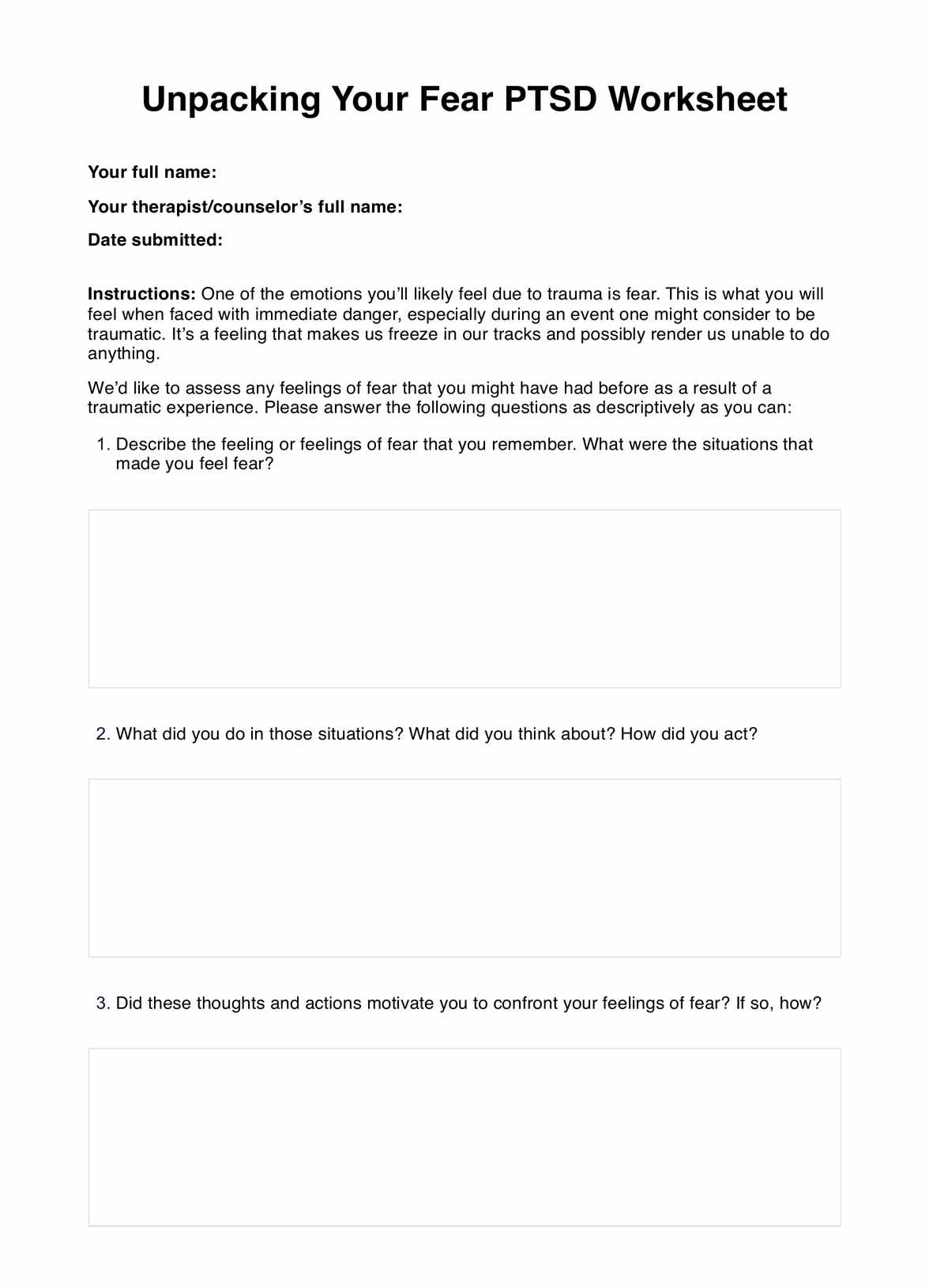
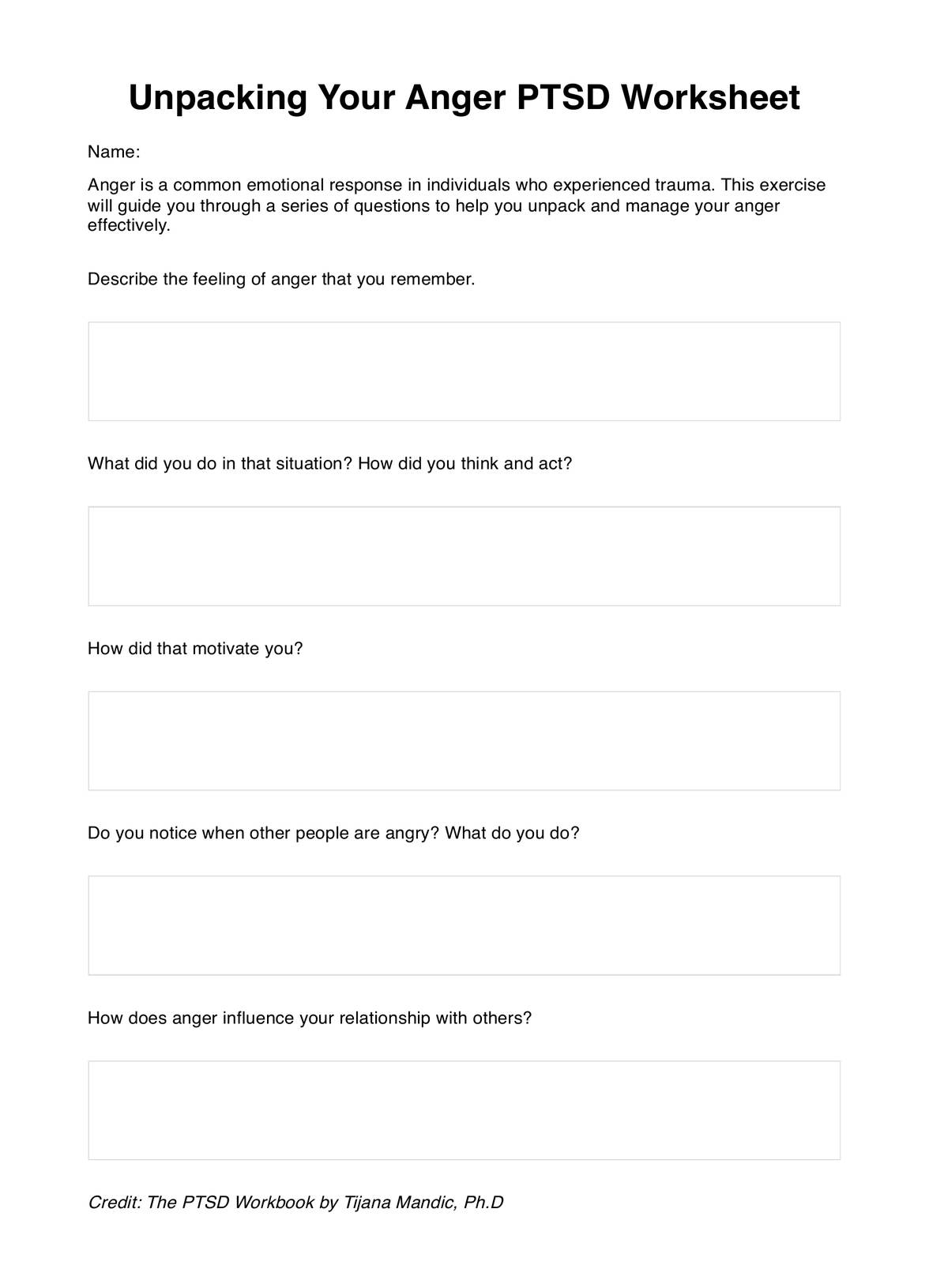
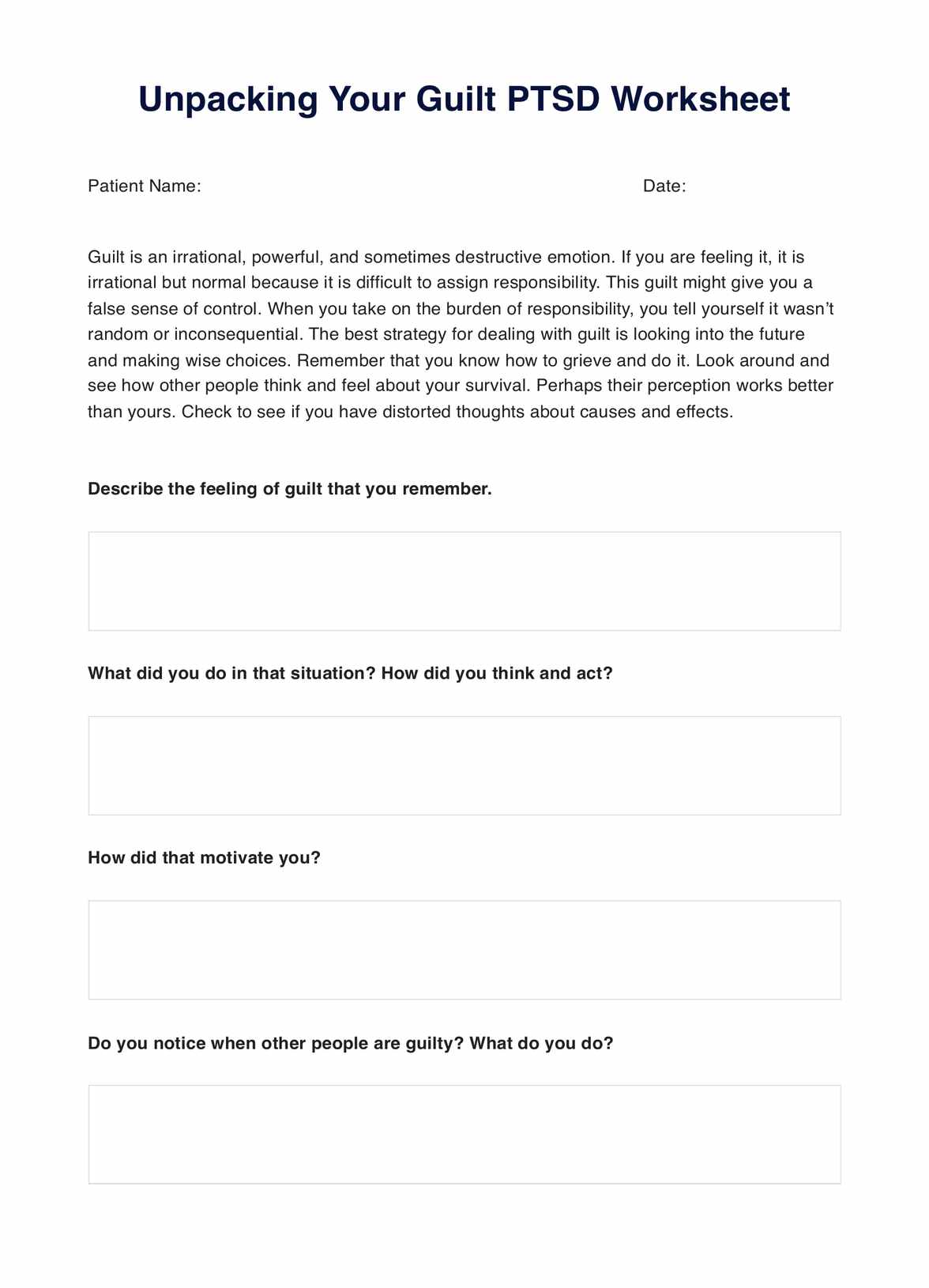















-template.jpg)




















































































